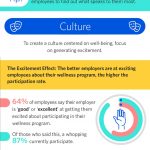Workforce Diversity – The Good, The Bad and The Very Ugly
May 17, 2016

Diversity is a topic that continually dominates the conversations of many people in the staffing industry. Every year, when analysts release their predictions of trending issues, diversity tops the list. It’s a small wonder, really. We’re in the people business, and people are diverse. How we view and treat them ultimately determines our success or failure. Companies that champion diversity demonstrate thriving corporate cultures that spur innovation, produce superior results and attract the best talent. They also reap greater financial rewards. Organizations that promote inequality lag behind. It’s a tale best told by the technology sector. And a compelling example comes from a videogame pioneer and a military contractor.
The Shaky State of Equality
In the United States, the diversity reports of powerful tech companies illustrate the distances we have yet to go before achieving genuine inclusion for every member of the nation’s workforce. There are standouts like Slack. Not only is the company signing up users at an insane pace, Slack is creating a flourishing culture of diversity that rivals others in the same sector.
Most tech industry enterprises are pushing hard to restructure their operating cultures, attract skilled talent and improve their employment brands. However, the lingering obstacles of the past continue to haunt them. The recent revelations of Alex St. John, the inventor of DirectX technology and founder of WildTangent gaming software, demonstrate just how pronounced those challenges continue to be.
St. John’s controversial article in VentureBeat provoked the ire of industry peers. He included a presentation infused with sexism, ageism and other offensive declarations. Vox’s Aja Romano offered a succinct and sharp critique, describing it as “everything wrong with Silicon Valley culture in one gross presentation.”
For over a decade, the videogame industry has been the subject of much scrutiny by fair employment advocates. Accusations of exploitation and abuse abound. The situation came to a head in 2004 when EA’s draconian work standards made national headlines. The company cut costs, enforced 80-hour work weeks without overtime compensation, eliminated days off and promoted a hostile environment for its non-executive talent. As a result, the company ended up with a turnover rate of 50 percent among its engineering staff.
The recent statements made by Alex St. John simply reiterate that the problem is far from resolved.
WildTangent Founder’s Wild Workforce Diversity Tangent
What St. John accomplishes in his screed goes beyond the example of EA’s former practices. The presentation, titled “Recruiting Giants,” represents hiring tactics and philosophies. And it doesn’t merely denounce the importance of fair compensation and working hours; it attacks a range of diversity values, decrying them as counterproductive to the homogeneous culture he believes in. Here are some of St. John’s statements, which were universally panned.
- “You don’t recruit and retain male engineers you recruit and retain Wives and Girlfriends … The paycheck goes to HER.”
- “Real engineers don’t value money.”
- “The Young the Old and the Useless. Nothing beats youth for speed and innovation.”
- “Be on the look out for the holy grail… the undiscovered Asperger’s engineer. (usually found on open source forums). They work like machines, don’t engage in politics, don’t develop attitudes and never change jobs. They have no social skills. They generally marry the first girl they date.”
- “Seasoned veteran’s, married, 9 kids, severely battle scarred, seen and done it all… need balance in their dotage.”
- “Sandwiched between the young and untainted and the grizzled war veterans is a vast sea of The MEDIOCRE. ‘Balance’ is their priority in life… they see their job as WORK.”
Even St. John’s daughter condemned him: “On the blog, they uncovered extremely distasteful recruiting slides and supplemental blogs with revolting opinions regarding women, minorities and the mentally handicapped in the tech industry. Since these findings, countless others and I have found ourselves at a loss for words how anyone, especially someone in a position of power, can think that it is acceptable to broadcast such offensive material.”
The Motley Fool’s highly praised employment handbook is often held up as the gold standard of innovative recruiting. The way it reveals the values and culture of the organization draws candidates in. Material like St. John’s also reveals the culture of a company — in a negative way that repels top talent and discourages diversity candidates from applying. Even employees who remain in such an environment can expect the worse. Countless studies show that hostile cultures lead to productivity losses, stagnation and health issues.
Raytheon — Another Ray of Hope for Workforce Diversity in Tech
We’ve just seen perhaps the darkest side of diversity in the tech space. Now let’s look at an incredible bright spot. Raytheon is the premiere provider of missiles, electronics and military technology in the defense sector. It’s the Pentagon’s largest supplier. Since last year, sales have climbed by over nine percent, and its earnings surpassed the expectations of analysts. There are many reasons for its success. One is that Raytheon keeps developing cutting-edge products and higher quality services. This has allowed the company to steal business away from longstanding incumbents. It’s also expanded its offerings to commercial markets.
In short, Raytheon keeps innovating. The best and brightest talent are flocking to its offices. Why? Because despite what you may think a defense contractor’s culture is like, Raytheon has emerged as one of the most inclusive businesses in the United States. As Loren Thompson writes in Forbes:
“In 2002, it was among the first U.S. companies to offer domestic partner benefits. In 2005, it became the first defense contractor to win a 100% rating from the Human Rights Campaign for providing protections and partner benefits to gay, lesbian, bisexual and transgender employees. This year marks the eleventh straight year it has gotten a perfect score on the campaign’s ‘best place to work’ index.”
Impressive, yet that’s not all. There’s even more going on at Raytheon, according to Thompson.
- Raytheon is one of few Fortune 500 enterprises that provides financial assistance to employees who are adopting a child.
- This summer, Raytheon will expand its already generous maternity leave policy. The new benefits will include ample paid time off for mothers and fathers, whether they are having a new baby or adopting. The intent is to ensure that parents have the opportunity to bond with their new arrival.
- Raytheon’s diversity development approach is equally robust. The company sponsors nine “employee resource groups,” which support categories such as Native Americans, LGBT persons, Millennials, women and veterans. The purpose is to bring members of these groups into Raytheon’s management system to foster ongoing innovation.
Of course, under federal contracting rules, Raytheon must ensure pay parity for commensurate work. And the 94-year-old company has historically exceeded these mandates (voluntarily) to promote diversity and respect. In fact, as Thompson explains, every employee receives a badge that highlights Raytheon’s core values of trust, collaboration and fair opportunity: “We are inclusive, embrace diverse perspectives, and value the role we all play in our shared vision… We honor our commitments, anticipate the needs of our customers, serve our communities and support each other.”
Workforce Diversity — A Small World Still in Need of Big Changes
As the borders between nations and societies crumble, we’re all getting swept up in the rush of globalization. As that happens, we’re also starting to grasp just how different and unique we truly are. Diversity isn’t just a staffing industry topic. It’s taken center stage in the national dialog during this polarizing election season — more than economics, job creation, the military or taxes. Why is the issue of uniting people so divisive? It’s well established that acceptance benefits societies and businesses tremendously. The truth is that the problem transcends politics — it’s about the perceptions of individuals and small groups, regardless of their party affiliation.
That’s why the stark contrast between Alex St. John and Raytheon provides an important lesson. Most people would probably define a video game company as more “liberal” — a creative business populated by creative talent: writers, artists, visual designers, imaginative coders, actors and others. The industry does tend to have a Hollywood feel to it. Then there’s a company like Raytheon — a group of technicians and engineers who manufacture weapons. Most people would likely associate Raytheon with conservative values. At least, that’s how the rhetoric plays out in political theater.
The truth is that values, culture, ethics, compassion and inclusion don’t spring from an industry or political system. These qualities radiate from the hearts of leaders who understand the limitless potential of people — who understand that their success is built upon the success of their talent, regardless of background, race, gender, orientation or any other characteristic that defines individuals and makes them great.
Business & Finance Articles on Business 2 Community
(28)














